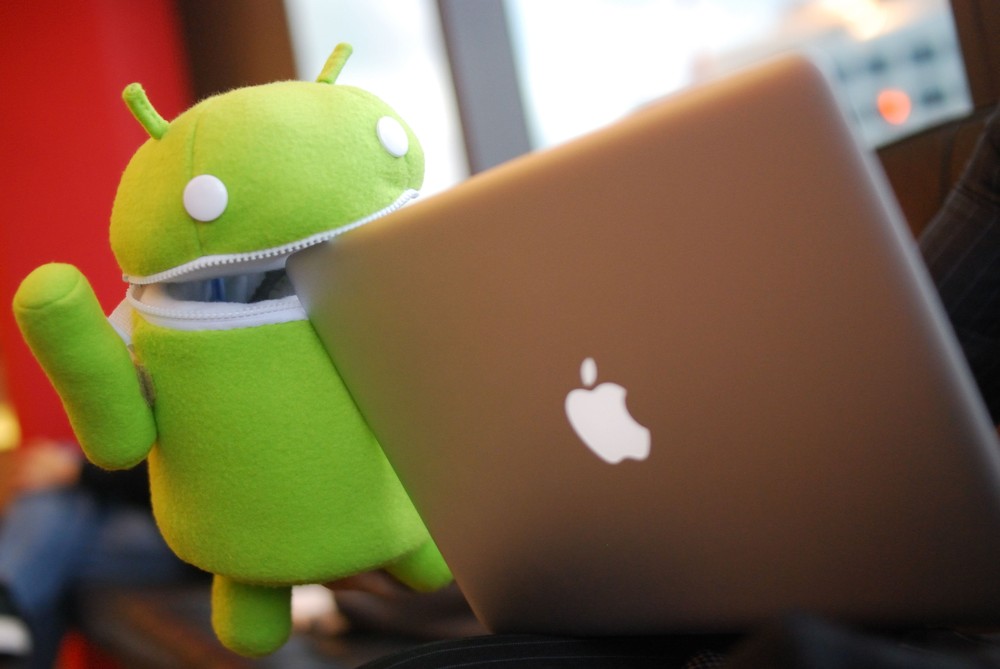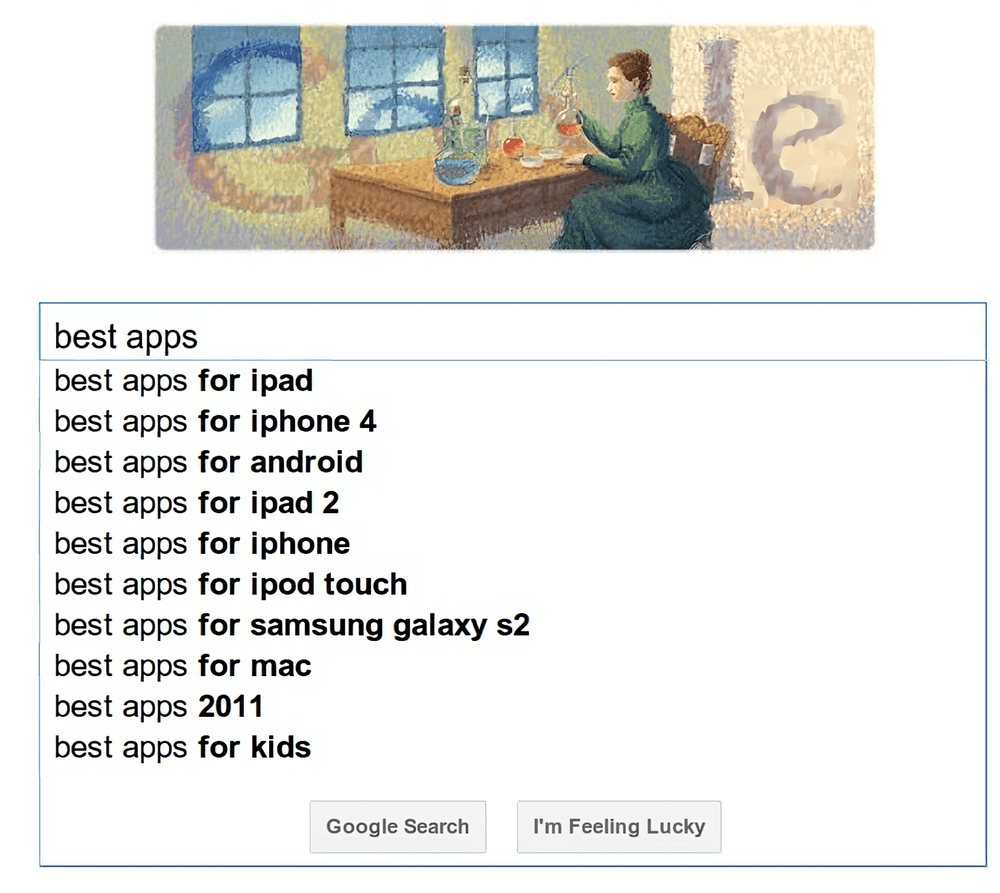Wonder why $GOOG and $AAPL haven't invested more in making app store search actually work. A critique: http://t.co/ofVg3Dhb
— Tim O'Reilly (@timoreilly) November 5, 2011
I saw the tweet above from Tim O'Reilly the other evening, and duly read the post attached. The premise is that search in the Android Market and in iTunes is fundamentally broken - so badly busted in fact that AltaVista could have produced a better search engine. Enter into the mix, Chomp who profess to solve the app search problems by doing things like indexing comments about the app, links to it from blog posts etc in order to give it a more "google-style" ranking.
Whilst I technically applaud what Chomp have managed to do, they have almost no revenue to speak of and a dismally small audience for such a service. My sense is that the reality of app store search is that almost no one actually uses it to search for apps in a general sense - they use it for recognised brand terms or keywords which lead them, without fail, to exactly the application the user is after.

No one I know (and I talk to a LOT of people about mobile device usage) have ever said to me that they couldn't find the app they were looking for. When was the last time someone you know lamented the fact they couldn't discover an app based on broad criteria? I'm tipping never.
If you're a mobile maven or a serious app hipster then yes search is broken for this context (yes, I fall into this camp too). For the other 200 million (and rising) users around the world they actually don't care about the latest, most niche app in the market all they care about is that they can find the specific app they are after. And how do they find what app they are after? Marketing.
Pure, simple, traditional, marketing.
The app store is not the web and because it's not the web it doesn't get the web's benefits (relatively easy to search, standards based, hyperlinked content). Apps are actually a lot like, wait for it, applications - and if you've ever had anything to do with real application development then you'll know there are huge marketing teams (the same size or bigger than the dev teams) who exist purely to market the bejusus out of the product that's been created.
When you play this game it's all about awareness and conversion - typical marketing activities and those that are doing really well in the app stores understand this model very well. The application is promoted as a product, it's highlighted on the website, there are emails sent out raising awareness with a download link and it's promoted on TV and all the other channels one advertises products.
Let's face it, no one goes to iTunes and searches for "app to see what my friends and family are up to" - they type in Facebook. Similarly no one searches for "restaurant review guides" - they type in Yelp, or Urbanspoon or whatever other brand they related to out on the web.
And I can almost guarantee you that no one has ever searched for "kill pigs with irate avian projectiles using a catapult game".

Apps, like any other product are also subject to referral. People write about them - how many blog posts are entitled "The 10 best [CATEGORY] apps for [PLATFORM] ever"? If you like something you tell someone about it and if you really like something you install it for them on their device. I'm not sure either of my parents have ever even seen an app store but they have plenty of applications installed on their phones and tablets courtesy of us kids.
One of the most telling aspects of the recent Android 4.0 launch was that they demoed in passing how using NFC you can share any arbitrary piecs of content by touching phones together. Applications was one of the demos of this and clearly the Android team has seen some data to indicate that personal referral is a major way that apps are shared.
Which leads me back to the start - that apparently search is broken in the app store.
Mobile devices are one of the most highly monetised and increasingly optimised sales channels currently in operation. Every search, application view, download and uninstall can be measured by person, by location and probably a heap of demographic inference by virtue of the rest of your account with Apple and Google.
In my view it is inconceivable that if there were even a reasonable number of searches occurring within the app stores that didn't convert into a download that search wouldn't be fixed. This is Google's core business - they have the means to fix it - if something was broken. And you can be sure Apple would either buy or build something that worked as well. If even 1% of searches were resulting in a lack of discovery, that would translate to potentially hundreds of thousands of dollars, if not millions over time. That's revenue that would be just left on the floor. Revenue like that tends to get picked up by data-centric businesses pretty quickly.
The other factor in all of this is that over the last 15 years we have been trained to believe that the web has the answers. Google is always there in a web browser, only a few seconds away, regardless of mobile device or desktop. A couple of little app stores that we only use once every couple of weeks isn't going to become our first point of reference compared to the entity that answers our questions multiple times a day, every day.

Ultimately there's nothing new about this at all - how do I choose what bit of video editing software to install on my Ubuntu laptop? I go to the web, I read reviews then I download and install the ones I want to check out; eventually selecting one that meets my needs. Synaptic doesn't do this for me and it's one of the best (and longest lived) app stores in existence.
So I don't believe that the app store search is broken and I think there is definitely a place for more editorially driven referral. Looking at what nvidia is doing with the Tegra Zone on android is a good indicator of how this could work (magazine content to promote android games designed for the tegra graphics chip).
Ultimately I'm not convinced that apps are our long term future on mobile any more than they were on the desktop and we will start to see a rationalisation whereby the best survive and the others just fade away into nothing or at least transition into web apps, just like a lot of desktop software did over the last 10 years. At the end of this process though we'll end up with smaller app stores, more editorially controlled, with higher quality, more relevant applications and at that point this whole search debate is meaningless. When was the last time you required search to find some "office productivity software" in Dick Smith or Best Buy or PC World? While you ponder that I'm off to use an app that "displays short, character limited messages from people all around the world" on my phone.
About this post
- Title
- "App stores are delivery channels not search engines"
- Published on
- Monday, November 7th 2011
- Tags
- android internet iOS mobile web Apple google
- Author
- ajfisher
- License
- CC BY-NC-SA 4.0 International License
- Permanent source
- https://www.ajfisher.me/2011/11/07/app-stores-are-delivery-channels-not-search-engines/

